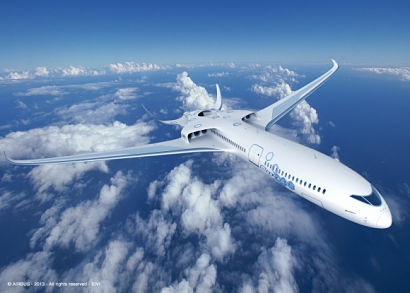
It is a world airport first. Heathrow has been inspired by the first short electric-powered flight carrying two passengers at Oslo Airport earlier this year and is aiming to utilise its role as one of the world’s leading airports as a means of driving sustainable aviation across the industry.
At the BusinessGreen Leaders’ Summit in London last week, Heathrow Chief Executive John Holland-Kaye launched an innovation incentive of nearly £1 million. Currently, there are more than 100 electric aircraft projects underway across the globe and industry thinking suggests electric aircraft could touch down at major international airports by 2030. However, there are two main obstacles still facing innovators – cost and demand. The Heathrow innovation incentive will help to incentivise airlines to invest in electric technology, thereby increasing demand and driving forward the arrival of zero-emissions flights at the airport.
Electric aircraft could be much quieter, cleaner and more efficient than than the current fleet. Passenger numbers are expected to double globally by 2035 and the transition to electric will play a critical role in delivering a sustainable future for the aviation sector. Heathrow currently incentivises airlines to bring their greenest fleet to Heathrow through the use of environmental charges, and will continue to work with airlines to develop these incentives in the future. Further sustainability advances will support goals outlined in the airports Heathrow 2.0 strategy.
Heathrow’s existing plans to decarbonise the industry and pursue clean growth include the quarterly “Fly Quiet and Green” league table which tracks airline performance on noise and emissions targets and a partnership with Virgin Atlantic and LanzaTech to advance the take-up of more sustainable biofuels.
“Heathrow has long been a leader in sustainable aviation” said John Holland-Kaye. “We championed carbon neutral growth in global aviation, which will come into effect in 2020. The next frontier is zero carbon flying, and I hope this prize will help to make it a reality at Heathrow by 2030.”
Airbus Chief Technology Officer Grazia Vittadini added that, with air traffic projected to double every 15 years, it is the industry’s duty to find solutions that ensure sustainable growth with minimal environmental impact and that this is the driving force for Airbus development of electric and hybrid-electric propulsion technologies.
UK Aviation Minister Liz Sugg said that the government is committed to cutting carbon emissions and promoting new environmentally-friendly fuels in transport, including in the aviation industry. The government’s Aviation Strategy will also consider further ways to support the development of cleaner, greener technology in the sector.
In the next few months, Heathrow will be publishing its carbon neutral growth roadmap, setting out how the airport can deliver its aspiration for growth from a third runway to be carbon neutral. Heathrow is already working towards operating carbon neutral airport infrastructure by 2020, a key step towards being zero carbon by 2050, and is also reducing carbon in its supply chain.
Image: Courtesy of Airbus
For additional information:

